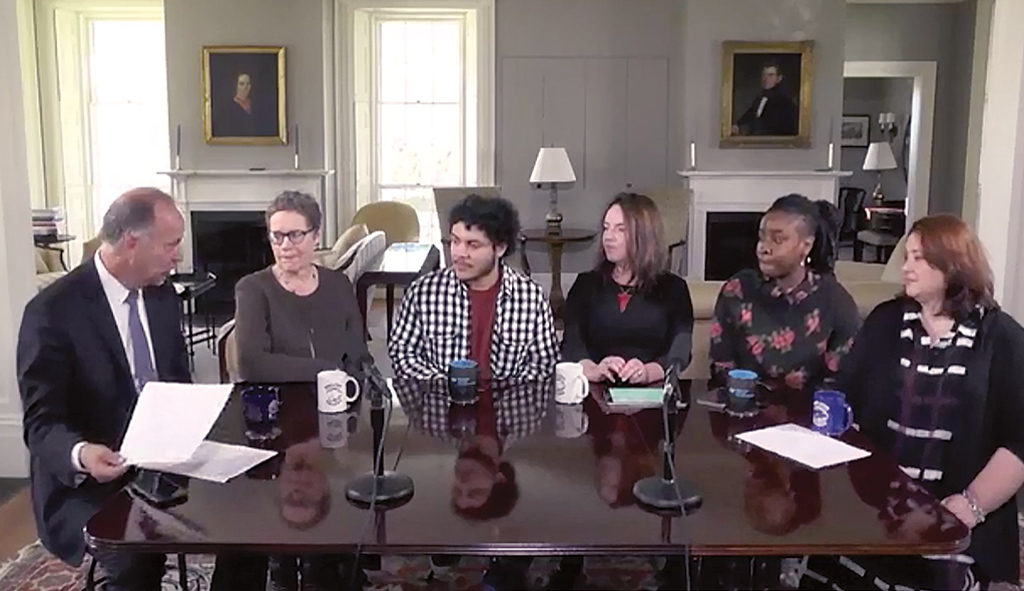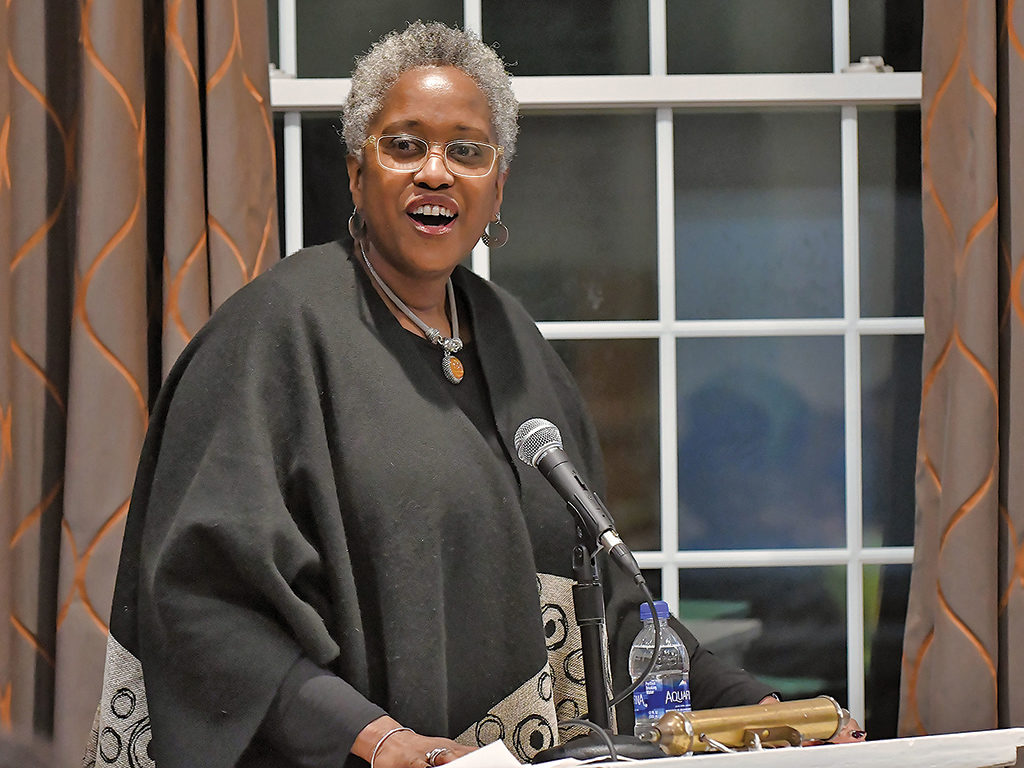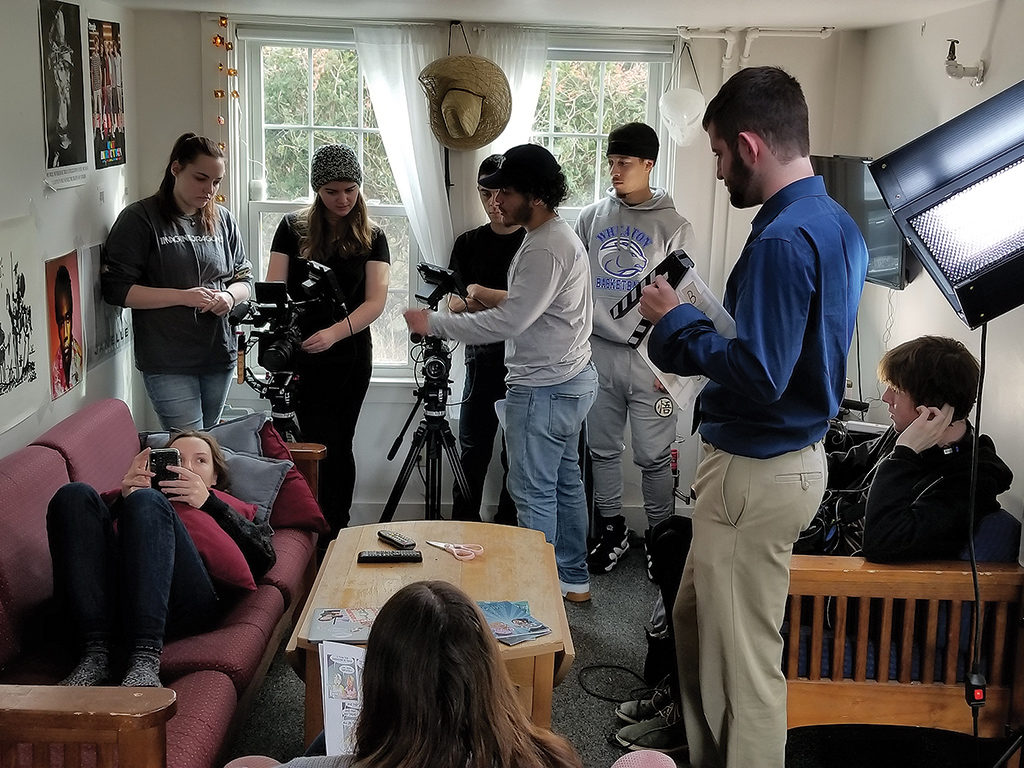Building partnerships in education
Center for Collaborative Teaching and Learning opens
Teaching and learning happen everywhere at Wheaton—in classrooms, labs and residence halls; on athletic fields; and during student-run activities and Filene Center advising sessions.
The new Center for Collaborative Teaching and Learning (CCTL), which officially opened in January 2019, aims to build on the college’s holistic approach to education, helping to grow a rigorous and culturally diverse learning environment to promote student success.
“It’s really important that we consider what’s happening both inside the classroom and outside of it, and that we develop a more holistic view of the teaching and learning taking place on our campus,” said Cary Gouldin, a co-director of the center and the humanities liaison in the library. “That will help us create an institution that can fully realize our goals to create a transformative learning experience.”
The CCTL is focused on fostering partnerships in teaching and learning among faculty, students and staff to achieve that goal, according to the leaders who have worked during the past year to bring the center into existence. The collaborators have big plans for the 2019–20 academic year:

This fall, the CCTL plans to offer two opportunities for faculty and staff to work with leading educators on inclusive pedagogy and racial justice: Floyd Cheung, vice president for equity and inclusion at Smith College (and father of a Wheaton student), on October 2, and Rhonda Magee, professor of law at the University of San Francisco and author of The Inner Work of Racial Justice, on October 23.
In January 2020, the center plans to launch the CoLAB Institute to support faculty and staff in using scholarship on teaching and learning.
An Assignment Test Kitchen is also in the works; students will be trained to collaborate with faculty and staff to fuel innovation in assignment design.
“We want to foster a model of collaboration where students are brought into the educational process as partners from the start, not just in the classroom, but as partners in the design of the institution,” said Professor of Anthropology M. Gabriela Torres, who, along with Gouldin and Professor of English Claire Buck, is a co-director of the new center. “In prior years, students have been brought in as part of the consultation process after designs were completed.”
Fatoumata Diallo ’19, who also was on the steering committee before graduating, said that this approach gives students a real voice in their education. “We can actually be involved in making things happen,” she said. “We won’t be leaving it to our professor—or the provost or the president—to do it. And that will increase students’ engagement in their Wheaton education.”
Dominick Torres ’20, a film and new media studies major who has led the CCTL’s tool kit video project, agreed. “If students can take on some responsibility and ownership of teaching and learning, they are more inclined to be deeply engaged,” he said.
The center’s tool kit videos showcase experimentation in teaching and learning and feature students and faculty reflecting on their experiences, exemplifying the kind of collaboration the CCTL hopes to foster.
The senior, who serves on the center’s steering committee, also noted that “through collaboration, we can really stretch students into being more like a colleague. That’s really such a powerful thing—especially as we prepare to move from campus into work and careers.”
During the spring 2019 semester, the CCTL debuted the first of its videos, which featured Assistant Professor of History Shenglan Li and Assistant Professor of Biology Jessie Knowlton discussing how they implemented a small change in their pedagogy, drawing on James Lang’s Small Teaching: Everyday Lessons from the Science of Learning (Jossey-Bass, 2016). Two students, Artie Street ’21, a psychology major, and Dina Murphy ’21, a biology major, are also included, sharing their reactions to the changes.

For its inaugural event on February 6, the CCTL welcomed educator and author Peter Felten, professor of history and executive director of the Center for Engaged Learning at Elon University, to talk about the book he co-authored, The Undergraduate Experience: Focusing Institutions on What Matters Most, which identifies six core themes that matter most for student success. In addition to the public lecture, Felten met with the Student Government Association, the Curriculum Design Team and the Wheaton Inclusive STEM Excellence leadership group, among others.
On March 20, the center hosted Tia Brown McNair, vice president in the Office of Diversity, Equity and Student Success at the Association of American Colleges and Universities, for a public event as well as small-group meetings. To get ready for McNair’s visit, the CCTL partnered with the Marshall Center for Intercultural Learning to organize a book club reading of the book McNair co-wrote, Becoming a Student-Ready College: A New Culture of Leadership for Student Success.
In May, Professor Torres also worked with Touba Ghadessi, associate provost for academic administration and faculty affairs, to incorporate a teaching and learning component of the Faculty of Color Working Group Symposium that took place on campus in May.
The work of the CCTL already is making an impact beyond Wheaton. In November, the CCTL co-directors are scheduled to make a presentation at the Professional and Organizational Development Network in Higher Education conference in Pittsburgh. They will share the work they did last spring establishing a semester-long learning community that looked at how algorithms and data perpetuate inequality and bias, and considered how the insight of new interdisciplinary scholarship can be incorporated into teaching and learning at Wheaton.
Buck noted that Wheaton has a long history of innovation in education to build upon. “Wheaton’s commitment to innovative and inclusive pedagogies goes back a long way. The development of a gender-balanced curriculum in 1982 was a signature initiative,” she said. “The Center for Collaborative Teaching and Learning will build on this tradition, investing in developments at the college and promoting Wheaton’s reputation as a leader.”

